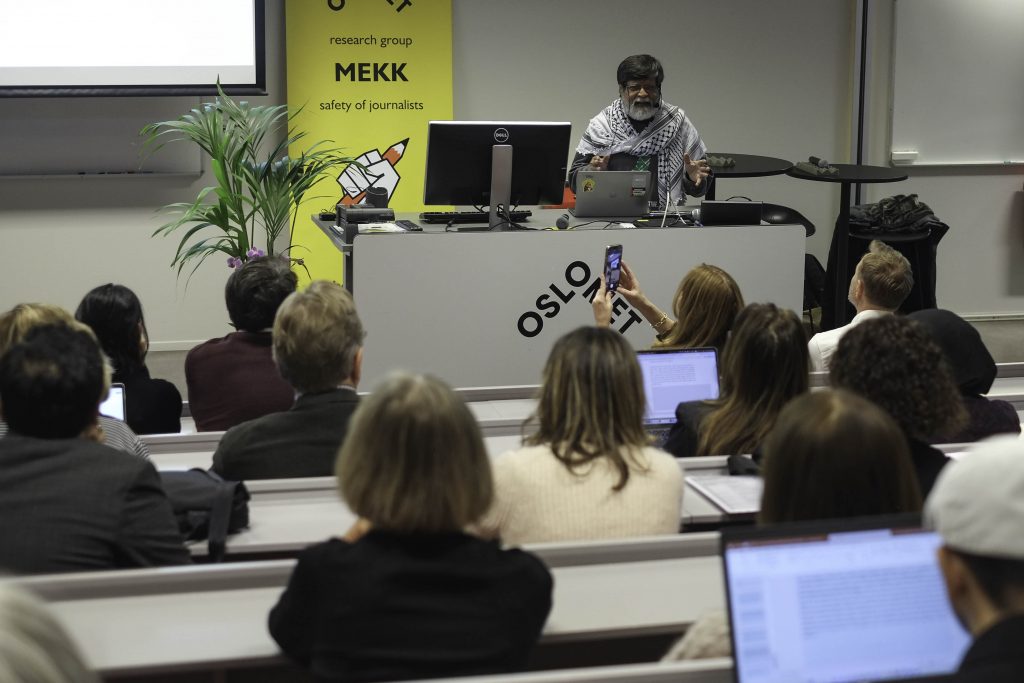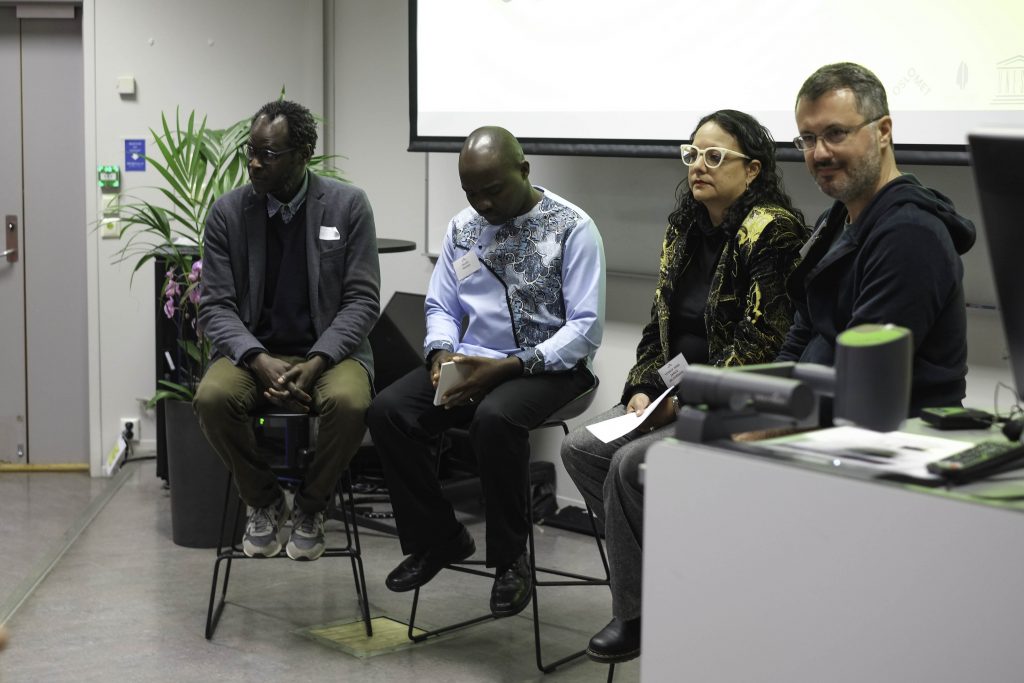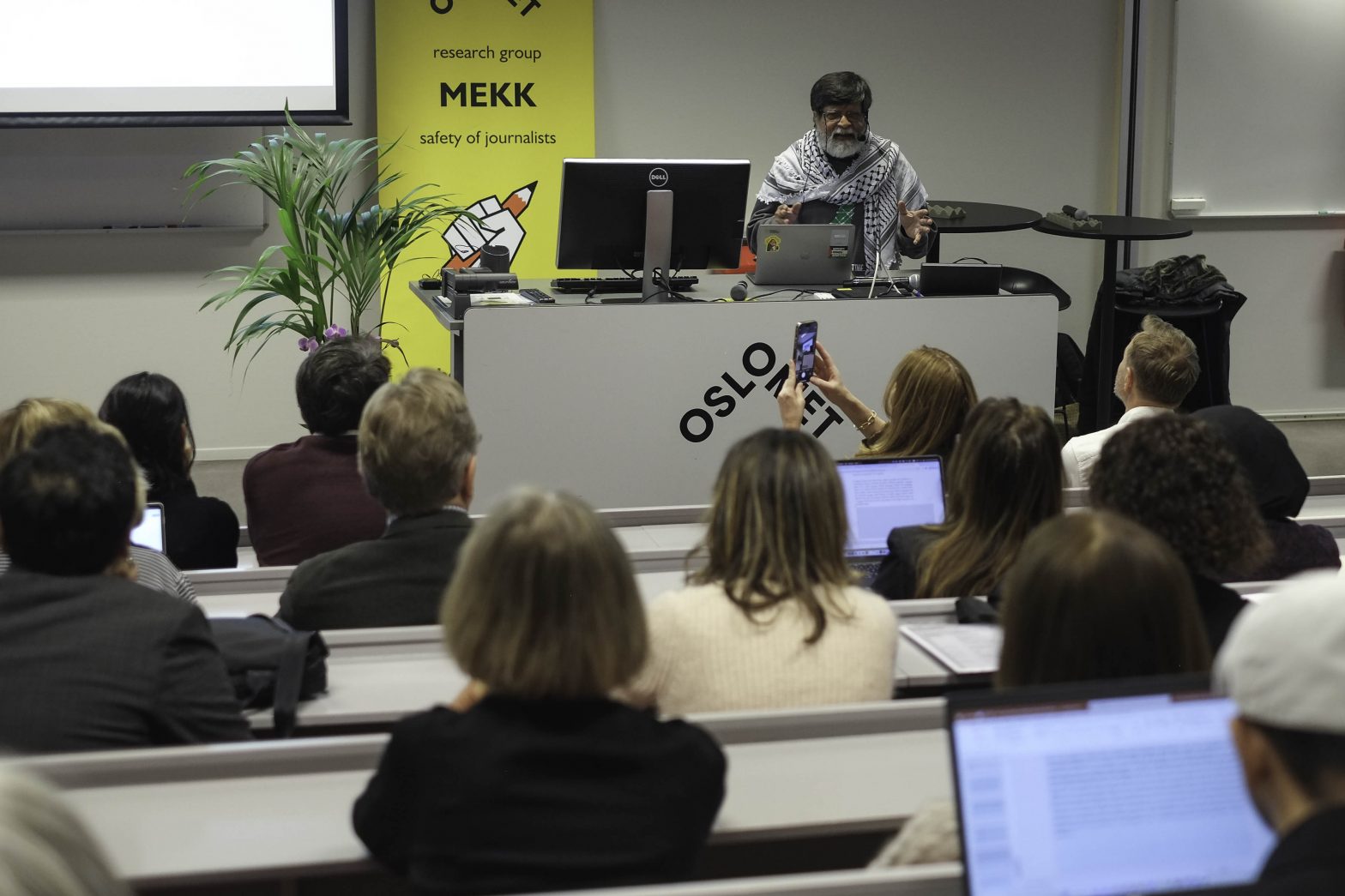Text & photo: Hannah Frogg Oseid
The research group MEKK (Media, krig og konflikt) hosted its 10th international conference on “The Safety of Journalists,” bringing together attendees from around the world. This year’s theme focused on the role of journalists in elections and their coverage of war and conflict. The conference opened with introductions from MEKK researchers Kristin Skare Orgeret and Roy Krøvel, along with Carl Thodesen representing OsloMet.
Following the opening, pianist Svein Amund Skara performed Frédéric Chopin’s Revolutionary Etude in C minor, Op. 10, No. 12 and Harald Sæverud’s Kjempeviseslåtten, both pieces centered on the theme of revolt.
Ellen Lande Gossner then introduced Shahidul Alam, a photographer, writer, curator, and activist from Dhaka, Bangladesh. Alam, founder of the Drik Picture Library and Patshala media institute, delivered the opening keynote on the challenges of elections amidst conflict. He shared insights into Bangladesh’s political history, from its liberation in 1971 through twelve elections, highlighting his own experiences as a journalist, including his 107-day imprisonment for documenting protests. Alam spoke on the dangers journalists face in Bangladesh, the impact of student-led demonstrations, and the legacy of individuals who lost their lives fighting for democratic freedoms. Noting Bangladesh’s low press freedom ranking (165 out of 180 countries) compared to Norway’s top position, he posed challenging questions: “What do we do with that freedom?” and “Have we done enough?”
Neena Kapur, Senior Director of Information Security at The New York Times, gave a presentation on digital security for journalists. She discussed practical measures for journalists to enhance digital safety, the security protocols media organizations implement, and the psychological stresses associated with digital threats. Emphasizing the importance of heightened security measures during elections, Kapur introduced the concept of Threat Modeling—analyzing risks by identifying what needs protection, the potential threats, and the likelihood and consequences of security failures. She provided tools for journalists to maintain digital security, stressing that threat models must consider individual identities, including gender, ethnicity, and location. Kapur also noted the balance between digital and physical safety, posing the question of whether disabling location tracking, for example, ensures safety on all fronts.
The day concluded with a panel discussion on the safety of journalists covering elections worldwide. Panelists included Yennué Zarate from Mexico, Samba Badji from Senegal, Dessalew Getnet Ayalew from Ethiopia, and Barış Çoban from Turkey, who discussed the challenges in their respective countries. Topics included the risks journalists face covering protests, government and candidate influence on elections, and country-specific issues such as Uganda’s internet shutdown during elections, Senegal’s potential election delays and media biases, Mexico’s first female president facing misogynistic abuse, and journalists’ exposure to digital violence. Çoban further described the influence of mafia groups and troll groups in Turkey and the risks they pose to both journalists and minorities.
To conclude the session, Svein Amund Skara performed Scott Joplin’s Maple Leaf Rag on piano, bringing a lively end to the day’s proceedings.



